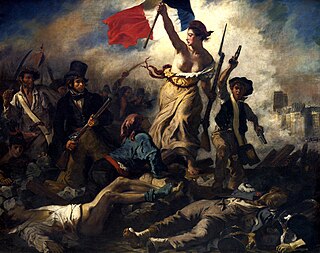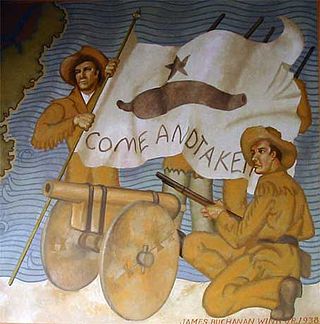Contents
| |||||
| Decades: | |||||
|---|---|---|---|---|---|
| See also: | Other events of 1924 List of years in Belgium | ||||

Events in the year 1924 in Belgium .
| |||||
| Decades: | |||||
|---|---|---|---|---|---|
| See also: | Other events of 1924 List of years in Belgium | ||||

Events in the year 1924 in Belgium .
August 12 is the 224th day of the year in the Gregorian calendar; 141 days remain until the end of the year.
June 25 is the 176th day of the year in the Gregorian calendar; 189 days remain until the end of the year.
January 25 is the 25th day of the year in the Gregorian calendar; 340 days remain until the end of the year.
May 12 is the 132nd day of the year in the Gregorian calendar; 233 days remain until the end of the year.
November 19 is the 323rd day of the year in the Gregorian calendar; 42 days remain until the end of the year.
October 1 is the 274th day of the year in the Gregorian calendar; 91 days remain until the end of the year.
October 8 is the 281st day of the year in the Gregorian calendar; 84 days remain until the end of the year.
1960 (MCMLX) was a leap year starting on Friday of the Gregorian calendar, the 1960th year of the Common Era (CE) and Anno Domini (AD) designations, the 960th year of the 2nd millennium, the 60th year of the 20th century, and the 1st year of the 1960s decade.
1924 (MCMXXIV) was a leap year starting on Tuesday of the Gregorian calendar, the 1924th year of the Common Era (CE) and Anno Domini (AD) designations, the 924th year of the 2nd millennium, the 24th year of the 20th century, and the 5th year of the 1920s decade.
1839 (MDCCCXXXIX) was a common year starting on Tuesday of the Gregorian calendar and a common year starting on Sunday of the Julian calendar, the 1839th year of the Common Era (CE) and Anno Domini (AD) designations, the 839th year of the 2nd millennium, the 39th year of the 19th century, and the 10th and last year of the 1830s decade. As of the start of 1839, the Gregorian calendar was 12 days ahead of the Julian calendar, which remained in localized use until 1923.
1858 (MDCCCLVIII) was a common year starting on Friday of the Gregorian calendar and a common year starting on Wednesday of the Julian calendar, the 1858th year of the Common Era (CE) and Anno Domini (AD) designations, the 858th year of the 2nd millennium, the 58th year of the 19th century, and the 9th year of the 1850s decade. As of the start of 1858, the Gregorian calendar was 12 days ahead of the Julian calendar, which remained in localized use until 1923.
1843 (MDCCCXLIII) was a common year starting on Sunday of the Gregorian calendar and a common year starting on Friday of the Julian calendar, the 1843rd year of the Common Era (CE) and Anno Domini (AD) designations, the 843rd year of the 2nd millennium, the 43rd year of the 19th century, and the 4th year of the 1840s decade. As of the start of 1843, the Gregorian calendar was 12 days ahead of the Julian calendar, which remained in localized use until 1923.
1853 (MDCCCLIII) was a common year starting on Saturday of the Gregorian calendar and a common year starting on Thursday of the Julian calendar, the 1853rd year of the Common Era (CE) and Anno Domini (AD) designations, the 853rd year of the 2nd millennium, the 53rd year of the 19th century, and the 4th year of the 1850s decade. As of the start of 1853, the Gregorian calendar was 12 days ahead of the Julian calendar, which remained in localized use until 1923.

1831 (MDCCCXXXI) was a common year starting on Saturday of the Gregorian calendar and a common year starting on Thursday of the Julian calendar, the 1831st year of the Common Era (CE) and Anno Domini (AD) designations, the 831st year of the 2nd millennium, the 31st year of the 19th century, and the 2nd year of the 1830s decade. As of the start of 1831, the Gregorian calendar was 12 days ahead of the Julian calendar, which remained in localized use until 1923.

1830 (MDCCCXXX) was a common year starting on Friday of the Gregorian calendar and a common year starting on Wednesday of the Julian calendar, the 1830th year of the Common Era (CE) and Anno Domini (AD) designations, the 830th year of the 2nd millennium, the 30th year of the 19th century, and the 1st year of the 1830s decade. As of the start of 1830, the Gregorian calendar was 12 days ahead of the Julian calendar, which remained in localized use until 1923.

1855 (MDCCCLV) was a common year starting on Monday of the Gregorian calendar and a common year starting on Saturday of the Julian calendar, the 1855th year of the Common Era (CE) and Anno Domini (AD) designations, the 855th year of the 2nd millennium, the 55th year of the 19th century, and the 6th year of the 1850s decade. As of the start of 1855, the Gregorian calendar was 12 days ahead of the Julian calendar, which remained in localized use until 1923.

1835 (MDCCCXXXV) was a common year starting on Thursday of the Gregorian calendar and a common year starting on Tuesday of the Julian calendar, the 1835th year of the Common Era (CE) and Anno Domini (AD) designations, the 835th year of the 2nd millennium, the 35th year of the 19th century, and the 6th year of the 1830s decade. As of the start of 1835, the Gregorian calendar was 12 days ahead of the Julian calendar, which remained in localized use until 1923.

Belgium controlled several territories and concessions during the colonial era, principally the Belgian Congo from 1908 to 1960, Ruanda-Urundi from 1922 to 1962, and Lado Enclave from 1884 to 1910. It also had small concessions in Guatemala (1843–1854) and Belgian concession of Tianjin in China (1902–1931) and was a co-administrator of the Tangier International Zone in Morocco.
Events in the year 1990 in Belgium.